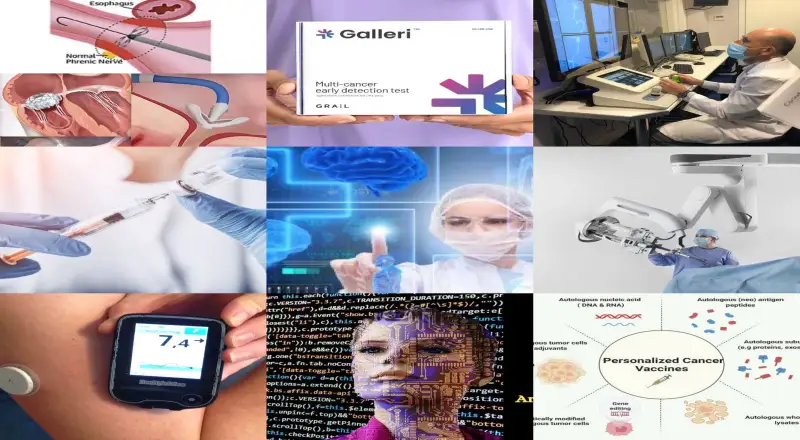Top 10 Breakthrough Medical Innovations of 2024
2024
votes
voters
views
items


These vaccines are designed to "train" the immune system to specifically target cancer cells, offering a more personalized and less toxic treatment option.

AI is transforming early detection by analyzing medical images with a high degree of accuracy, especially in regions lacking expert radiologists.

Devices like Dexcom’s latest models enable better management of blood sugar levels for diabetic patients, now with non-insulin specific options and longer wear times.

Innovations in robotic systems, such as Stryker’s Mako and Zimmer Biomet’s ROSA, enhance surgical precision, particularly in orthopedic surgeries for the spine and shoulder.

AI technologies are being applied to predict cancer progression and create individualized treatment plans, improving precision in oncology.

Shorter and more convenient cancer treatment delivery systems like Tecentriq, which reduces infusion time drastically, making treatments less time-consuming for patients.

New minimally invasive heart valve technologies are offering better solutions for those suffering from tricuspid regurgitation, with Edwards Lifesciences leading the way.

Blood tests capable of detecting up to 18 early-stage cancers are showing promise as the future of cancer screening.

